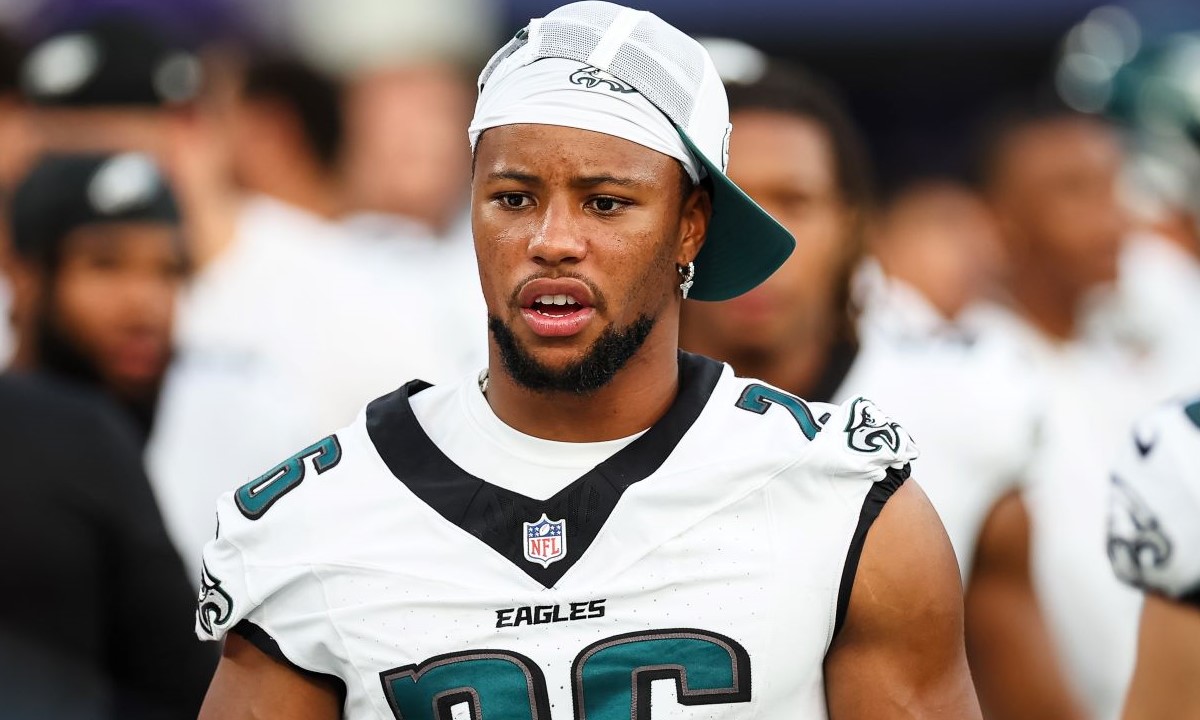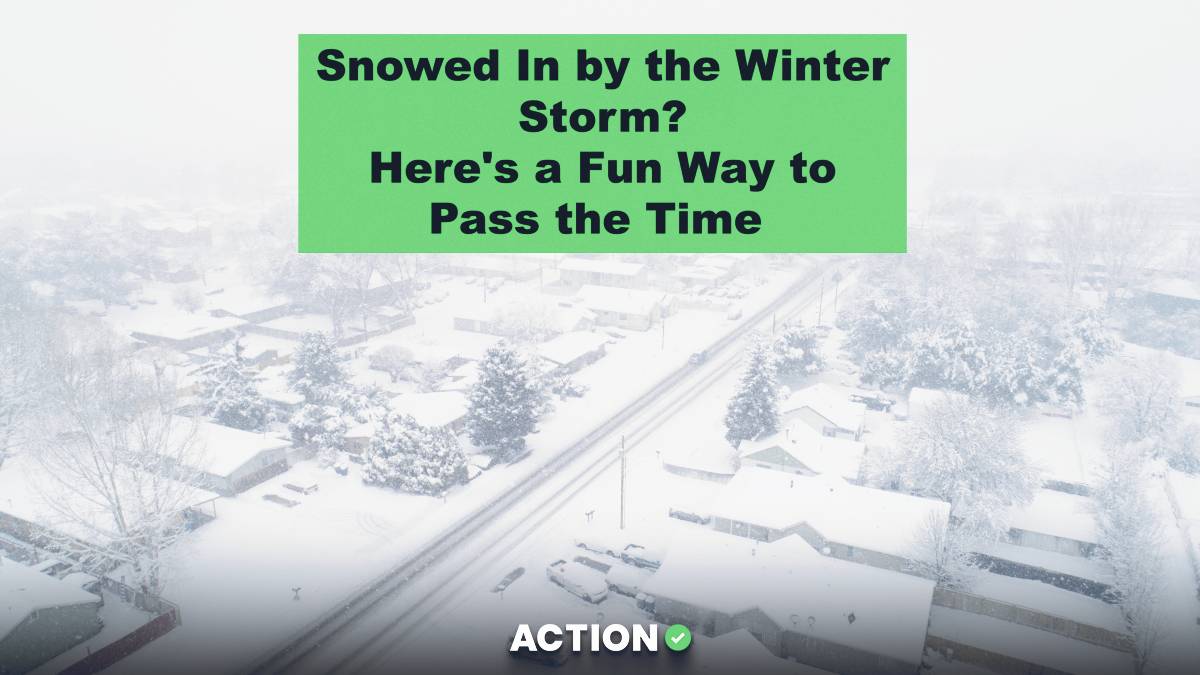On the Tuesday before the 2024 NFL regular season was to kick off, Field Vision launched an A.I.-driven mobile app that its founders believe can equip bettors with the tools necessary to spot critical pricing inefficiencies on the market.
Conceived by a pair of Stanford graduates, Field Vision’s proprietary model contains predictive analytics that identify the largest mismatches on the betting market each week. The duo combines a love of football with experience in data science, sports and modeling to offer users with a unique product each Sunday.
CEO Scott Bouska, a former NFL agent, previously served as vice president of consumer business integration at Nike. Bouska teams with co-founder Cameron Taylor, who has gained experience with data science and machine learning positions at Netflix, Instacart and Facebook, among other companies.
Field Vision aims to support fans who make a sizable investment in football predictions, whether through sports wagering or fantasy contests. Quite often, fans are inundated with an encyclopedia of information to inform their picks, so when the users frantically scroll through a bevy of sites shortly before kickoff, a rational price on the market can be lost in translation.
“This is why we created Field Vision,” Bouska said in a statement. “We believe the future of football is predictive; we can bring every level of fan closer to the sport and closer to knowledge and insights that will ultimately help them win their bets on a more consistent basis.”
Intersection of A.I. and Sports Betting
The launch comes approximately a week after DraftKings announced the acquisition of microbetting platform Simplebet in a deal that had been rumored throughout the summer.
Through the use of sophisticated machine-learning models, Simplebet's technology powers markets on the result of the next pitch in baseball, as well as outcomes on the next result in other sports such as football and basketball. If completed, the acquisition will enable DraftKings to implement Simplebet's models into its pricing and technology platforms.
Amid the explosion of artificial intelligence (A.I.) in numerous facets of daily life, one analyst questioned whether the acquisition will trigger further implementation of machine learning across the sports betting ecosystem. At the moment, FanDuel is rumored to be building an in-house microbetting platform, according to JMP Securities analyst Jordan Bender. In the wake of the DraftKings-Simplebet announcement, Bender believes sportsbooks could turn to other microbetting technology companies, such as nVenue, Kero Sports and Huddle, to supply the offering.
The #FieldVisionApp is live! 🏈🎉
Our APP combines AI with football-specific context to give fans:
– Accurate player & game predictions
– Curated Betting recs
– In-depth matchup analysis for every player & teamNow live in APP store & google play. Link below to download. pic.twitter.com/dz5RkMEsEa
— Field Vision Sports (@FieldVisionMi) September 3, 2024
On Friday, the Eagles will face the Packers in São Paulo when the NFL makes its regular-season debut in Brazil. According to Field Vision's models, Saquon Barkley should rush for approximately 69 yards while adding another 25 on receptions out of the backfield. By comparison, Barkley's rushing total at FanDuel is only 64.5, one yard below the total at BetMGM (65.5 yards). DraftKings offers bettors a price of -155 if Barkley rushes for at least 60 yards, as well as +110 if he rushes for at least 70.
The disparity at Field Vision is even more stark when it comes to Barkley's receiving-yard totals. Both FanDuel and BetMGM have set the total at 15.5, with FanDuel's price at -114. If you think the Pro Bowl running back will record at least 25 receiving yards, DraftKings is offering a favorable price at +170.
Other features offered through the Field Vision app —
- Matchup Index: Field Vision’s proprietary model identifies the biggest mismatches every week, using historical data to predict future outcomes based on scheme, tendency, game plan, and personnel.
- Betting Recommendations: a curated list of the week’s best bets vetted by Field Vision’s proprietary model and football experts.
Game Predictions: AI-driven score predictions for every NFL game based on matchup analysis between players and teams.
Player & Team Rankings: a unique data-informed point of view featuring Field Vision’s proprietary rankings (Threat and Havoc Ratings) and detailed analysis of the strengths and weaknesses of each player and team.
Expert Analysis: access to the weekly blog and newsletter, taking insights and recommendations from Field Vision’s model and delivering them to fans with the context needed to make informed decisions.
Granularity in Modeling
For the moment, it is unclear if Field Vision model is as granular as ones from other A.I. platforms like Quarter4.
Three years ago, Ontario-based Quarter4 set the market with impressive probability results when it came to accuracy. The company modeled certain props, such as total catches by a receiver, the wideout's overall yards and his longest catch of the game.
At the time, Quarter4's NFL models reported accuracy levels of 69%, exceeding its goal of 65%. For college football, Quarter4 delivered accuracy levels of 76%, due primarily to a seven-year time horizon with its historical data sets. Field Vision's model looks at a five-year time horizon for prior NFL games, coupled with other football-specific data to derive its insights.
With a multitude of coaching changes this offseason, games over the first month of the season can be challenging to model. New Packers defensive coordinator Jeff Hafley will install a 4-3 base defense in Green Bay, representing the first time the Packers will switch from a 3-4 since 2008. At Boston College, Hafley had a tendency to present opponents with a single-high safety look. An accompanying one-gap scheme appears to be a good fit for defensive tackle Kenny Clark, who is one of the league's best run stuffers.
But Hafley also stresses "schematic fluidity" and could switch to a Cover-2 zone with two high safeties when necessary. Consequently, it may be difficult to model how the Packers will defend Barkley in Hafley's first regular-season appearance with Green Bay.
The league's sharpest defensive minds also have a keen ability to disguise their looks in an attempt to confuse opposing quarterbacks. One trick is to play Cover-2 to one side of the field, with quarters coverage to the other. The coverage is typically employed when a team rushes four, while dropping seven into coverage.
When an offense runs "trips" to one side with three receivers, defensive coordinators can counter by aligning four defenders to the boundary. On the other side of a five-receiver set, a defense will have three defenders on the remaining two receivers.
The split-field coverage is described in depth on Cody Alexander's website, "match quarters." Alexander, who serves as Field Vision's head of football operations, received recognition for his work as a 2023 finalist in the NFL's Big Data Bowl. According to his bio, Alexander's ability to "deconstruct complex ideas into coachable concepts" illustrates his impact on the sport.
Brisker is an elite Down Safety, but the Bears opted only to keep 4 Safeties, & Ni Kyler Gordon is a stud.
Otherwise, the Bears would be on the list. https://t.co/zce6xD2ebBpic.twitter.com/hs54Uet5hY
— Cody Alexander (@The_Coach_A) September 2, 2024
A profile of Bears safety Jaquan Brisker underscores the defensive back's versatility. Field Vision's profile breaks down Brisker's rankings in rushing the passer and run support, along with his ratings in man-to-man coverage versus zone. Before the Bears face the Titans in Week 1, a perusal of Brisker's profile may inform bettors on whether to take a prop on wide receiver Calvin Ridley.
Field Vision received approval from Apple's App Store and Google's Play Store earlier this year. For this season, users will receive a free two-week trial, according to the company. From there, Field Vision will charge $9.99 for a monthly subscription or $49.99 per year.



















































